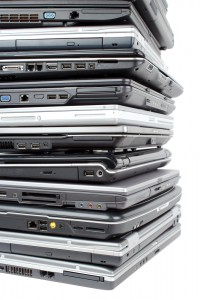Recycling Tips that Can Save your Business Money
 Have you ever walked up to the recycling bin next to the garbage can and been unsure of where to put something? If so, you’re not alone. Many people find the rules of recycling confusing, but it only takes a couple of minutes to educate yourself about the many items that are recyclable. We all know that recycling helps the environment and cuts down on waste that ends up in landfills, but increasing recycling at your business can have financial benefits as well!
Have you ever walked up to the recycling bin next to the garbage can and been unsure of where to put something? If so, you’re not alone. Many people find the rules of recycling confusing, but it only takes a couple of minutes to educate yourself about the many items that are recyclable. We all know that recycling helps the environment and cuts down on waste that ends up in landfills, but increasing recycling at your business can have financial benefits as well!
In short, recycling can save your business money. Often, recycling and composting is cost-effective and has lower fees than trash disposal costs. Systems for recycling vary by municipality, so it is worth looking at your town’s recycling program for more details about pick-up options, transfer stations, and trash disposal costs. Not only will recycling save your business money from a decrease in waste removal charges, but it may also provide you with some tax incentives as well. According to the EPA, there are 25 states offering incentives on property, sales, and income tax to companies that are committed to sustainability and that buy recycling technology.
Let’s not forget the other two of the Three-R’s! It’s equally important to remember that Reusing and Reducing will also save you money. Whether it’s packaging, one-sided printed paper or used furniture, see if these items can serve another purpose. Nothing will save you more money than not purchasing in the first place. Transitioning to paperless where feasible; making resource-heavy operations more efficient; and replacing disposables with durable goods are just some of the ways you can ‘reduce.’
To help your business save some money and become more sustainable, here are some recycling tips:
 Make sure all employees are familiar with what can be recycled. In many municipalities, products made from plastic numbers 1-7, glass, metals, paper, and cardboard can all be recycled. (Check with your town’s recycling program to learn which materials they’ll accept.) For more detailed information, check out Waste Management’s “What Can I Recycle?”
Make sure all employees are familiar with what can be recycled. In many municipalities, products made from plastic numbers 1-7, glass, metals, paper, and cardboard can all be recycled. (Check with your town’s recycling program to learn which materials they’ll accept.) For more detailed information, check out Waste Management’s “What Can I Recycle?”- A creative way to communicate information is to design recycling posters. This signage can go next to the recycling bins and the garbage with lists and pictures of recyclable items.
- Make recycling easy and convenient by placing recycling bins closer to employees than trashcans. By having the trash further away, it is more likely people will consider whether it can be recycled before opting for the trash.
- Get your employees engaged in the process. Let your employees know that your business is committed to recycling and has goals to reduce its waste. Check to see how little you can throw away in a week and provide incentives for when your company reaches your goals. Another great way to engage your employees is to conduct a “waste-loss challenge,” and give prizes to the employees who generate the least waste.
- Remember the Three-R’s: Reduce, Reuse, Recycle. In order to cut down on costs and garbage disposal charges, see if you can limit the amount of goods your business consumes. Then, see if there are products that can be reused. By including these two steps in addition to recycling, it’ll save you more money and make your business less wasteful. For helpful information to reduce and reuse at your business, check out the list by the U.S Small Business Administration.
 Learn what items are in your waste stream. Start by taking a visual inventory of what materials are thrown away. Then conduct a waste audit to get a more in-depth look at what is being thrown away and how much of it is actually recyclable.
Learn what items are in your waste stream. Start by taking a visual inventory of what materials are thrown away. Then conduct a waste audit to get a more in-depth look at what is being thrown away and how much of it is actually recyclable.- Appoint a recycling supervisor. Choose a motivated employee to be responsible for overseeing the recycling at your business. Similar to other projects, it is important to have someone take the lead and ensure the recycling program is on course and successful.
- Remember that electronics are also recyclable! Determine what electronic waste (or “e-waste”) your business and employees generate and incorporate it into your recycling plan as well. Since electronics contain special materials and toxic chemicals, they must be recycled responsibly through a certified company. Look for companies in your area that will recycle electronics – more options are becoming available all the time.
These tips are universal and can be used for all types of businesses – keep these suggestions handy and try to start making some easy changes. The Root360 assessment can help you evaluate your waste removal practices, and there are resources in the Root360 library to help you create a recycling plan.
And we get it – recycling isn’t sexy, nor is it an exciting use of your time. But it can save your business money, foster employee engagement, and help strengthen your public image and commitment to sustainability. When put that way, recycling becomes a much more worthwhile endeavor, doesn’t it?
Leah Soloway is a rising junior at University of New England in Biddeford, Maine and is pursuing a double-major in Business and Environmental Studies. She is originally from Brunswick, Maine, and is interested in sustainable business.
 © 2024 Manomet. All rights reserved.
© 2024 Manomet. All rights reserved.


